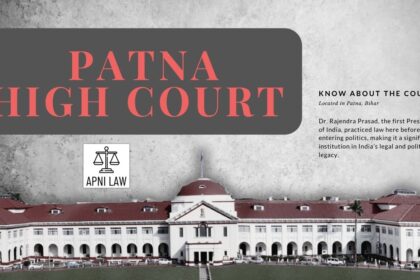The National Commission to Review the Working of the Constitution (NCRWC) made several major recommendations on judicial reforms to improve the Indian judicial system. The Commission aimed to make justice delivery faster, fairer, and more accessible to all citizens. It also sought to balance judicial independence with accountability, ensuring the judiciary remains efficient and people-oriented.
Speedy Justice And Special Courts
The NCRWC strongly emphasized the need for speedy justice. It recommended setting up special courts to handle certain types of cases swiftly, with the goal of delivering decisions within six months. The Commission proposed that these courts take evidence through commissioners to prevent unnecessary delays in trials.
It also suggested measures to curb prolonged detention, especially preventive detention under Article 22 of the Constitution. The Commission proposed fixing clear limits on detention periods to protect citizens’ liberty and uphold the principle of fair justice.
Access To Courts And Right To Speedy Justice
To make justice more accessible, the NCRWC proposed creating a new constitutional right called Article 30-A. This article would guarantee every citizen the right to a fair and public hearing and ensure reasonably speedy and effective justice through independent courts or tribunals.
By introducing this right, the Commission wanted to make the state responsible for ensuring that justice is not delayed. It viewed timely justice as a fundamental aspect of good governance and the rule of law.
Constitutional Position Of Fundamental Rights Related To Access
The NCRWC recommended elevating Article 39A, which deals with equal justice and free legal aid, from the Directive Principles of State Policy (Part IV) to the Fundamental Rights (Part III) of the Constitution. The Commission proposed reintroducing it as Article 30-B, thereby giving it greater legal enforceability.
This move would make access to justice a guaranteed right, allowing citizens to approach courts directly if they are denied legal aid or equal treatment in the justice system.
Structural Reforms In Judiciary
The Commission also focused on judicial infrastructure and the need for modern case management. It recommended the mechanization and computerization of court processes to make the system more efficient and transparent.
The NCRWC proposed increasing court working hours, reducing long vacations, and improving staffing and infrastructure to tackle the backlog of pending cases. These steps aimed to ensure that courts could dispose of cases more efficiently without compromising the quality of judgments.
Judicial Independence And Accountability
Maintaining the independence of the judiciary was one of the Commission’s top priorities. The NCRWC recommended constitutional and legislative measures to protect judges from undue influence while also promoting accountability.
It suggested the creation of an advisory board comprising serving High Court judges to review preventive detention cases and oversee court procedures. This board would help maintain transparency and ensure that judicial powers are exercised responsibly.
The Commission also supported performance reviews and ethical standards for judges to promote public confidence in the judiciary.
Legal Aid And Public Awareness
The NCRWC highlighted the importance of legal aid and legal literacy in promoting access to justice. It called for strengthening legal aid institutions and increasing public awareness about citizens’ rights and legal remedies.
By empowering marginalized groups and low-income citizens with better access to legal support, the Commission aimed to make the justice system more inclusive and fair.
Purpose Behind The Judicial Reforms
The Commission’s judicial reform proposals were guided by the belief that “justice delayed is justice denied.” Its goal was to create a justice system that is efficient, transparent, and accountable, without undermining its independence.
It wanted to make the judiciary more responsive to the needs of ordinary citizens by reducing delays, ensuring equal access, and improving court efficiency. These reforms reflected a vision of a modern judiciary that serves the people effectively while upholding constitutional values.
Long-Term Impact Of The Recommendations
Although the NCRWC’s recommendations were advisory, they have had a lasting impact on the debate about judicial reforms in India. Many of its ideas, such as promoting speedy justice, improving legal aid, and modernizing court infrastructure, continue to influence legal reforms and government policies.
The Commission’s report inspired later initiatives like the National Mission for Justice Delivery and Legal Reforms, which focused on reducing delays and improving case disposal rates. Its emphasis on digital courts, legal awareness, and judicial accountability remains relevant today.
For any specific query call at +91 – 8569843472
Conclusion
The NCRWC’s judicial reform recommendations provided a comprehensive roadmap for improving India’s justice system. By focusing on speed, access, structure, and accountability, the Commission aimed to modernize the judiciary while preserving its independence.
Its proposals recognized that the judiciary must evolve with changing times to maintain citizens’ trust and uphold the rule of law. Even today, the NCRWC’s vision continues to guide discussions on how to build a judicial system that is fair, efficient, and accessible to all.








